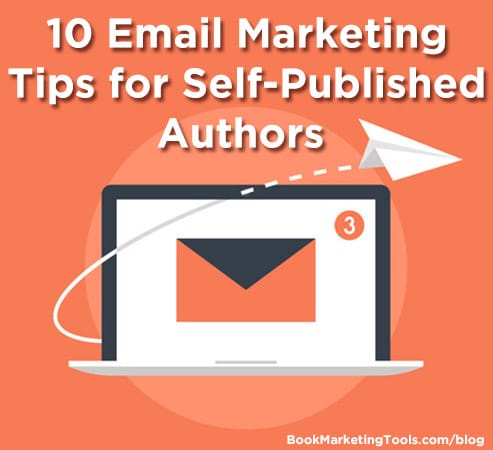You’re a good writer. Heck, you might be a GREAT writer. Now you’ve decided that you can write a whole lot more than books and want to tackle some email marketing. After all, you have a dedicated list of followers, why not reach out to them with your greatest tool: your words.
Email marketing is different than writing a blog or a book. Most people view email as a tool that’s meant for doing business or talking to friends and family. It’s not the place to write a 5000-word expressive piece on why you’re the next literary genius.
Here are 10 tips to help you with email marketing whether you’re new at it, or need to tweak what you’re already doing.
Don’t Follow a Formula
This is first on the list as you may be looking for a quick win-win formula to help you out. Avoid this common pitfall. Readers can see it coming a mile away. Especially if they’re interested in your writing. Do you really want to show them a form email as an introduction? Be original. That always works best.
Try New Things
If avoiding formulas is the first step, trying new things is step two. Promoting your book is difficult, so try to stand out by attempting to do things that other’s haven’t thought of before. You don’t need to reinvent the wheel, but if you can, why wouldn’t you? Add in a comic, tell a joke, live outside your comfort zone just for one email. You may be surprised by what works and what doesn’t.
Don’t Waste Their Time
Your time is valuable. So is theirs. Don’t waste it. Get to the point. This is fine line, as you don’t want to skip something that will make the email meaningful and memorable, but you don’t want to meander on a story that doesn’t add anything. Just look at time as currency in an email – what do you want to spend it on?
Avoid Common Mistakes
This should seem obvious, but the second you rush, you can actually end up making a few errors. You’re a writer, so you should know better, but here are a few tips to avoid some commonly misused words. A mistake or two can trip up a reader and totally turn them off, so be vigilant!
Reward Them for Reading
If they made it to the end of the mail, it’s great to offer a little reward. Even if it’s just a link to extra information that they’d find valuable. Or something they’ll find inspirational. Or just a small tip. Anything you can do to reward the readers that make it to the end will go a long way to making them feel valued.
Make a Promise in Your Subject
Let them know what they can expect from your email, and then deliver on that promise. Just keep it brief, but explanatory. You’ll find that getting too wordy in your subject can lose people. Most companies have boring subject lines. Don’t be one of them.
Be Specific in Your Subject
This goes hand-in-hand with the above principal. You’ll want to be direct and not let words clog things up. You’re a writer, so use that to your advantage. Say what you need to say in the fewest words possible. Ensure they get directly to the heart of the subject.
Be Yourself
You’re selling yourself, so be yourself. You’re the packaged goods. If they like the writing of your email, that could go a long way to help you selling whatever it is your selling. Especially if you’re just trying to build your list.
Don’t Be Eager to Sell
The biggest mistake is to ask for the sale right away. That’s a sure fire way to get deleted. Warm them up and sell the sizzle. Once you’ve got them set up, then you can hammer it home. Too soon and you’ll lose them. Too late, and they’ll already be gone. You need to find the balance and take advantage of it.
Have a Clear Call to Action
What do you want the email to accomplish? Even if the email is to tell an entertaining story about something, if the ultimate goal is to sell a book with that story, you’ll need a clear call to action at the end. Be direct. Ask for the business. People will appreciate this.
Experimenting is the best way to find out what’s going to work. What works for one writer may not work for the next. With a little luck, you’ll find your voice and build a successful email list!
Rick Riddle is a successful blogger whose articles aim to help readers with content management, entrepreneurship and self-development. Connect with Rick on Twitter and LinkedIn.

